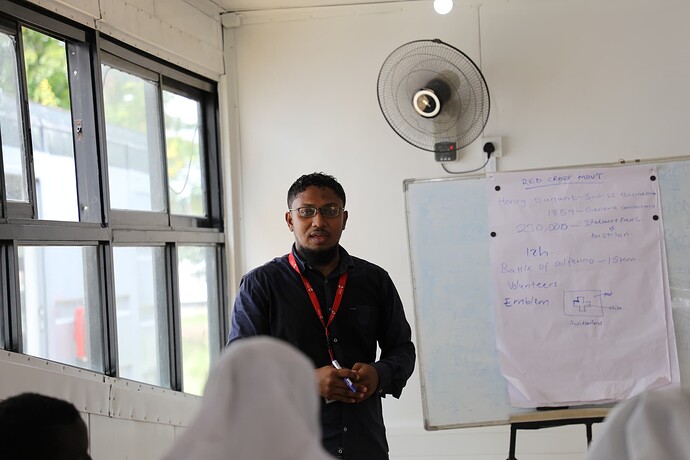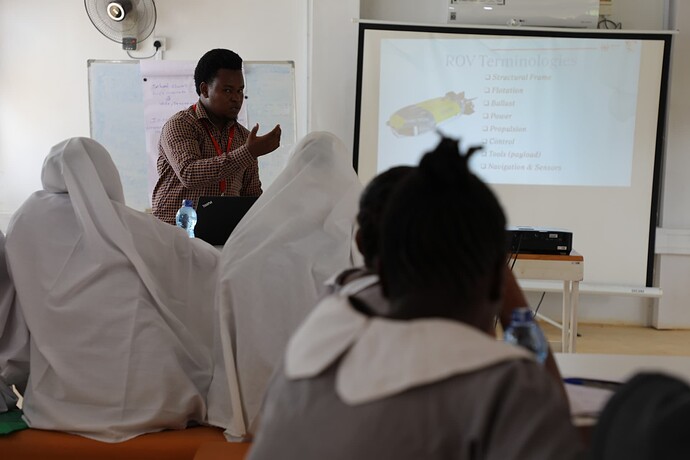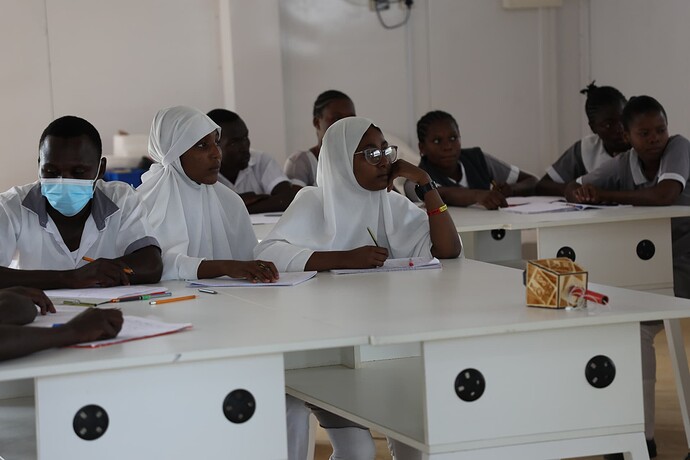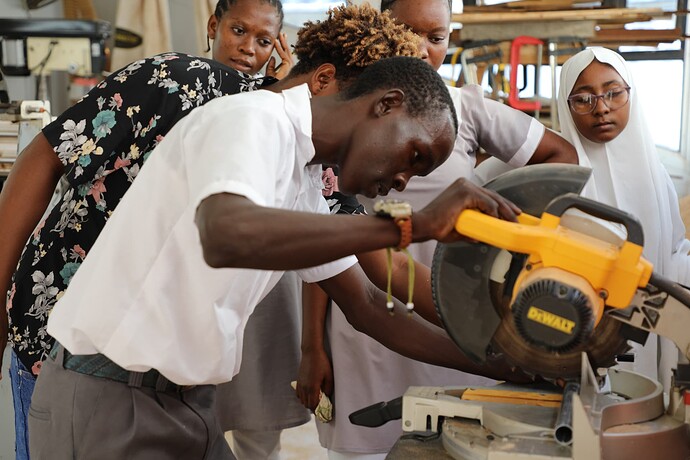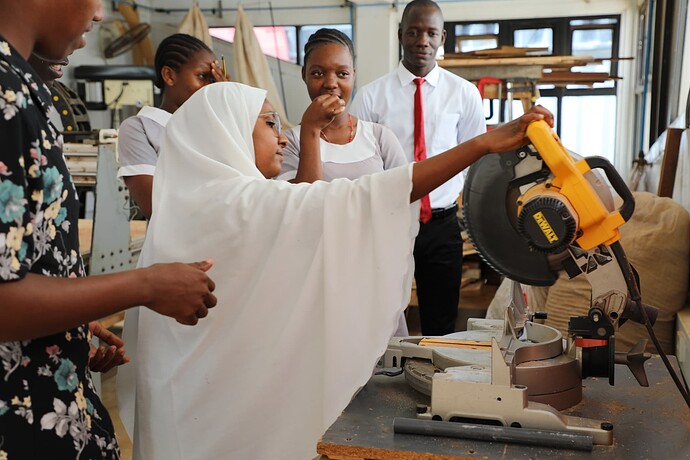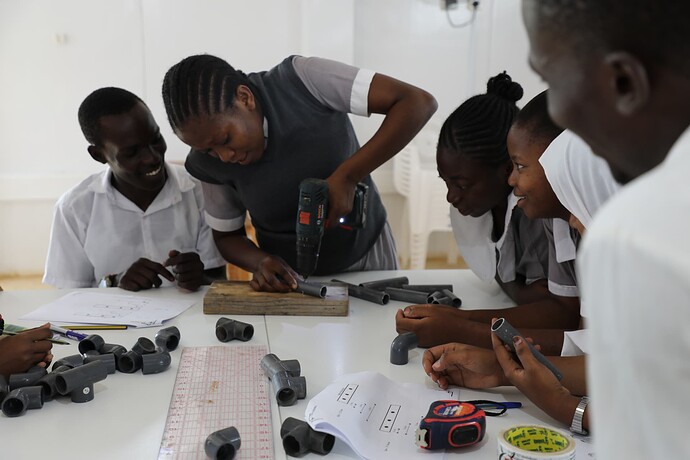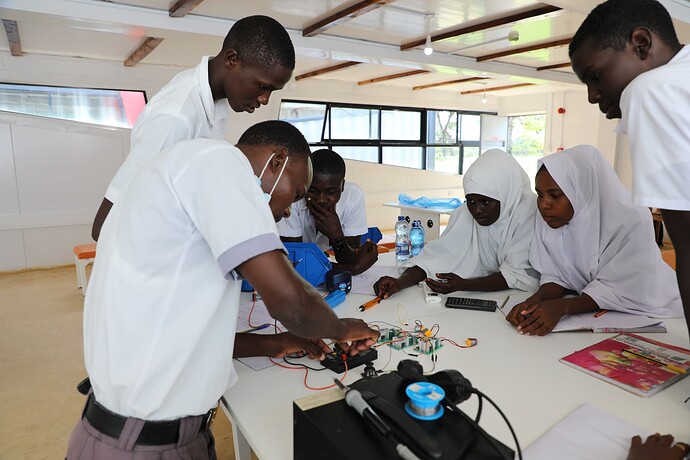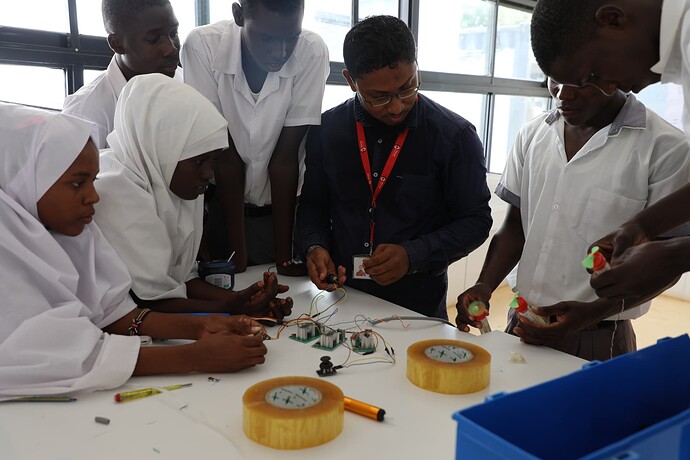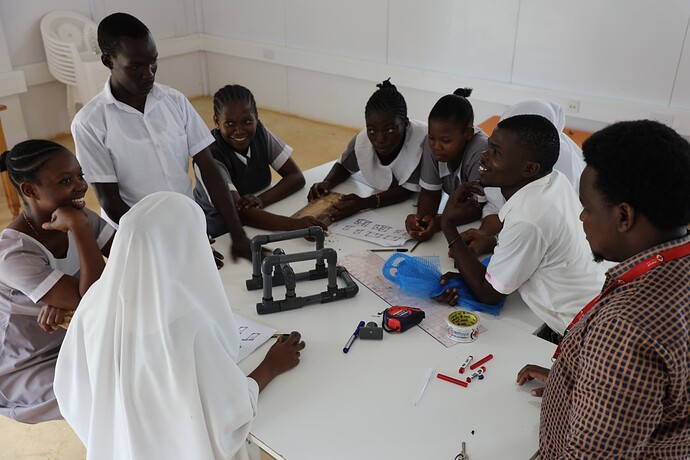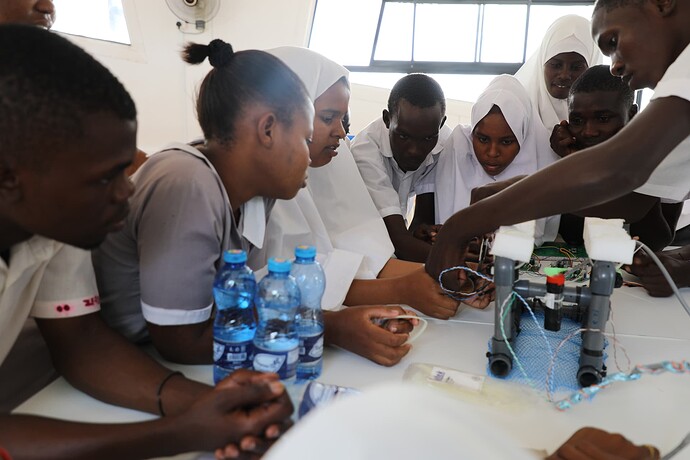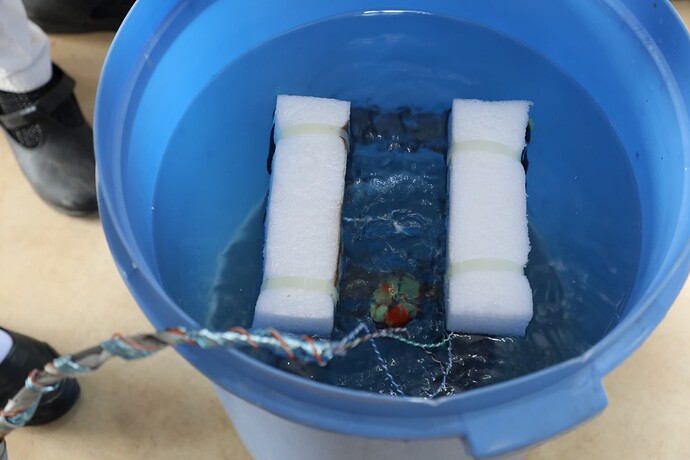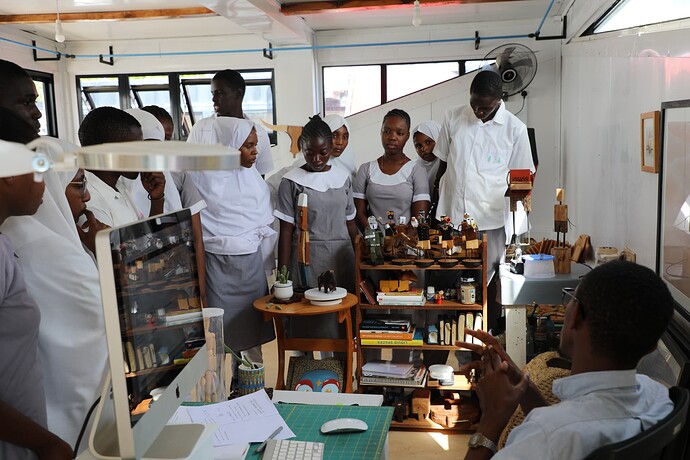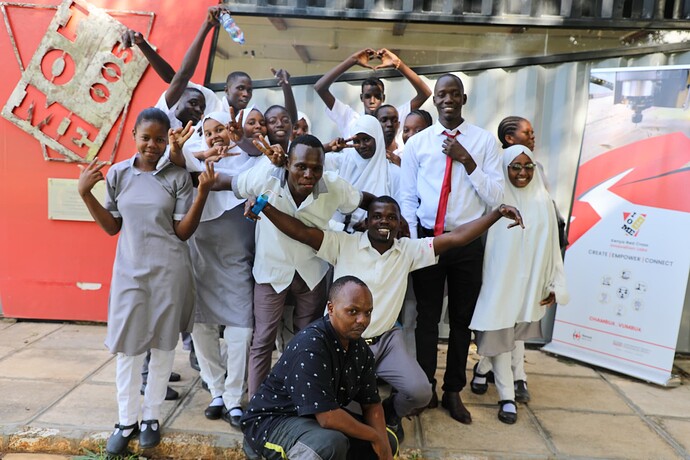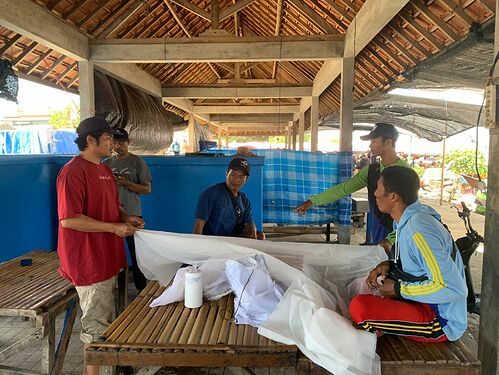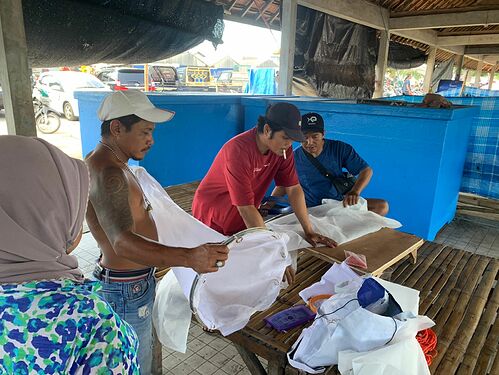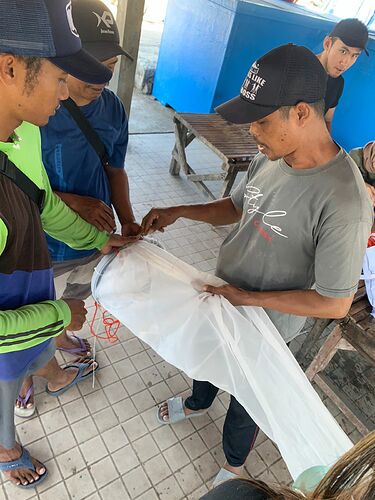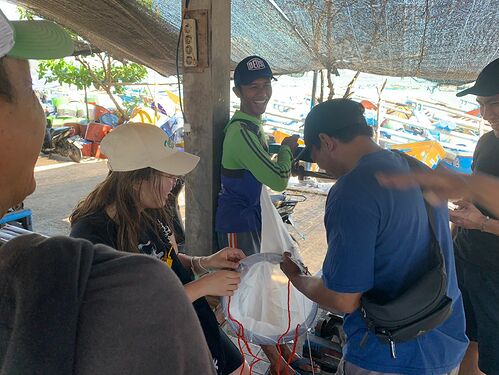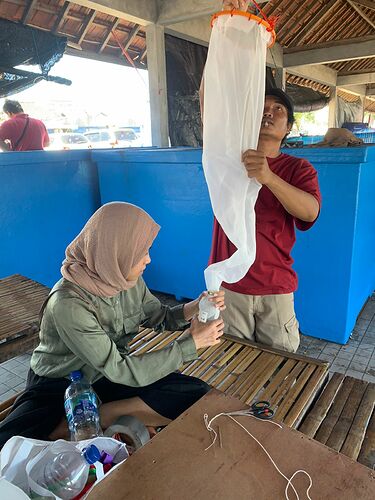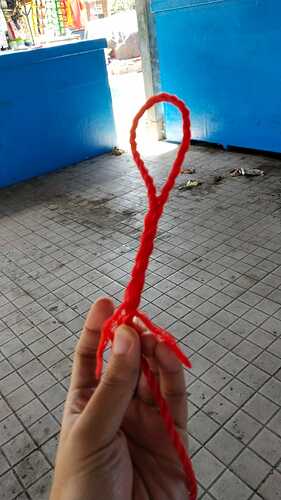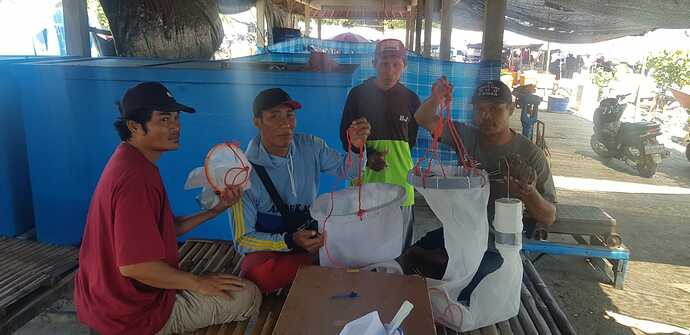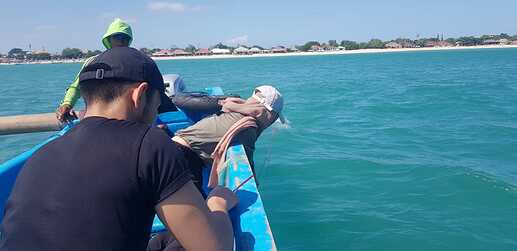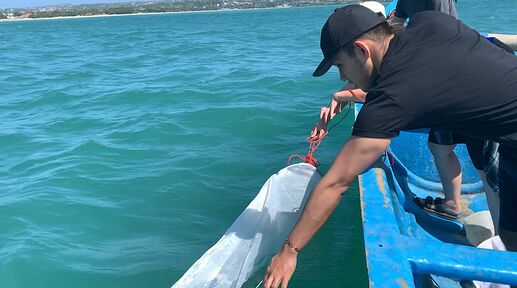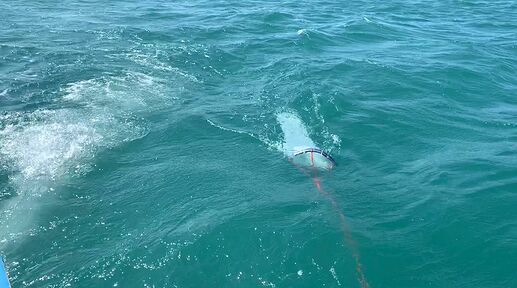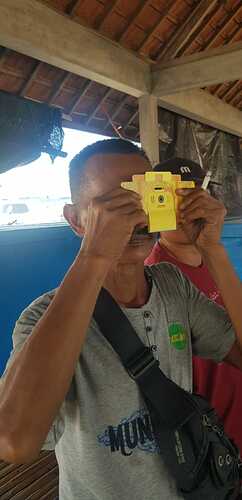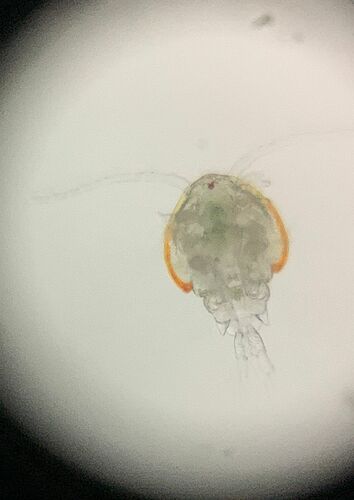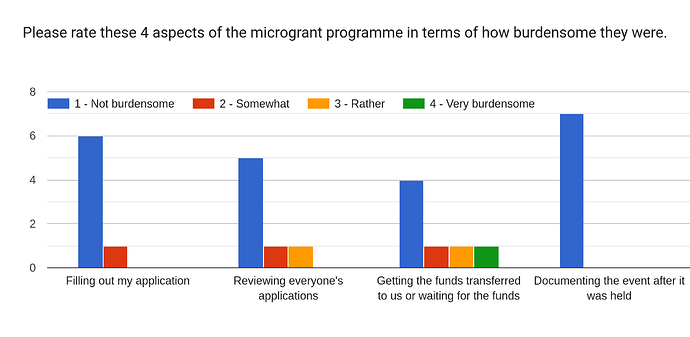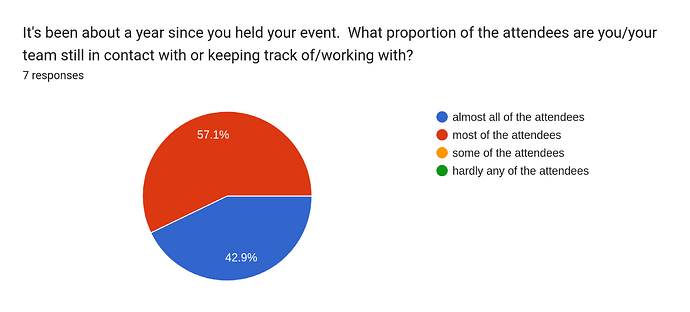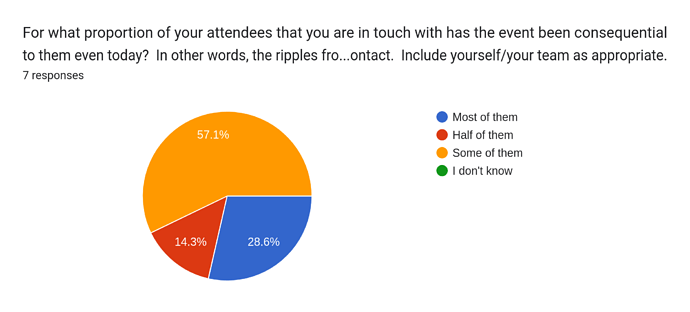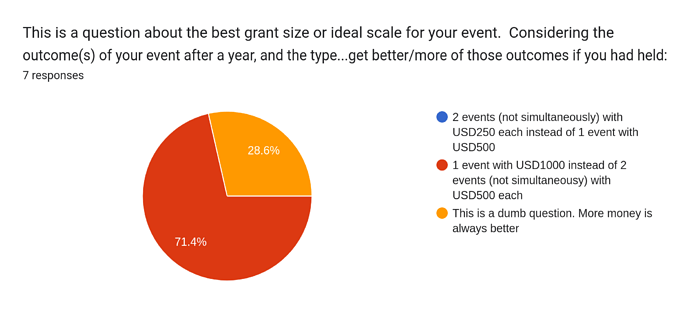Awesome! Can you please confirm what date the workshop was held?
Thank you! - Megan Z.
Hi! This says it is the initial and quick update. Can you please update the forum with your “final” update as soon as possible?
Thanks so much!
- Megan Z.
Awesome update. Can you please just let us know the date the two workshops were held?
Thanks so much!
- Megan Z.
Awesome report and so sad to read about the microplastics! ![]()
Can you please provide us with the “final” update for this microgrant? You mentioned session 2 was planned for the end of June. Please send over the update as soon as possible.
Thanks so much!
- Megan Z.
Hi Megan, the workshop is part of the grant, but it is still due.
The 4 professors were available and excited to participate though. The PCR cyclers are confirmed to be used for teaching at IIBio, from 2024 and on. The workshop will happen this year.
I was overwhelmed administering the regional event fund for reGOSHito, which took place during those same weeks, and could not deliver.
Best,
Nico
Hello everyone,
here is a quick report of our workshop on building underwater vehicle.
IOMe005 Innovation Lab hosted 15 physics students from Mokowe Secondary School in Lamu for a STEM workshop dubbed “How to Build an Underwater Vehicle”. During the workshop, the students were taken through a dissemination session to understand the roles of the Red Cross Societies as a humanitarian movement, the place of IOMe as an innovation and fabrication space, and the Gathering for Open Science Hardware (GOSH).
They were then taken through a session introducing what Remote Operated Vehicles (ROV) are, the different types available, and their functions. During this session, they were introduced to Underwater Robotic Education while engaging them to physics concepts such as fluid buoyancy, Ohms law, underwater thrust, water proofing systems, Basic electronics, Plastic welding, and open-science hardware.
The students were introduced to DIY processes and this started by taking them through different machines and tools that they later used to prepare and assemble their ROV structure from readily available materials
Another team worked on the control of the ROV and was also introduced to relevant tools to use in order to assemble different components. This also included practicing how to solder electronic components and wires. In order to drive and control the DC motors, they used three speed regulation module PWM regulator controller, two joystick modules for movement to the left and right and one potentiometer for upper and lower thrust.
Using those techniques, they all build the control and Structure and tested each to ensure they work well.
They later converged to assemble the framework, motors, and controls to make the ROV kit. Two blocks of Styrofoam were used as floatation material to improve ease of the ROV to float back to the water surface using less power.
They did a successful test using a container full of water and a trip will be arranged to take the ROV for a test in the ocean
We then held a reflective session where students shared their experiences and lessons learned. Then we took them for a tour of the lab to show them the other digital fabrication tools available for them to use.
And they were all happy and their physics teacher was happy!
Thank you GOSH for enabling us to host this amazing session. We look forward to doing more such sessions that help students understand the linkage between theoretical concepts learned in school and their industrial applications. This will always show the learners how they can also be innovative using what is available for them at school and home.
Hey Megan!
Sorry for the late reply - completely missed out on this one as things were hectic with setting up the lab in Bali. Yes we did end up having the second workshop done on the 18th of June! We basically made plankton nets with the fishermen and they improved on our designs so it became a co-creation workshop!!! We then went towing with the fishermen to test on their plankton nets and it worked amazing!!! Here are the photos:
(really cool knotting method taught to us by the fishermen)
post towing
we caught a copepod!
We are currently working on establishing a network between local fishermen and local marine biologists/researchers. Fab Lab Bali is working on projects that are open, inclusive, and involve collaborations/co-creations with the local and indigenous communities in Bali - we champion open science that leads to citizen science movements! Thank you so much GOSH for the support and enabling us to run these workshops ![]()
The ideas that came out of this workshop have enabled us to produce a report on :
Open Science Hardware Growth in Africa: Insights from a Community Forum
Hi,
Thanks for filling out the survey providing feedback on the microgrant process a year later.
7 out of 20 grantees responded, and the summary of the responses takes up the rest of this post:
Referring to the previous question, please share any comments or elaborations regarding the administration of the microgrant programme:6 responses
I think thé process was simple compared to other process I went through.
It was overall very smooth. The only issue for me was that such a small amount, while really useful, was below the lower limit for grant transfers to my local “fiscal sponsor”. Because of this, GOSH had to make the payments (a single one fortunately) directly.
Actually microgrant form by GOSH is quite simple and easy to follow unless the peer review. It demanded quite a lot of time to take a look at them.
The microgrant programme went well; from filling the application form to getting the funds and documenting the event afterwards. Whenever I needed clarity on any part, there was always a quick response.
The process of seeking clarification was being done on an open platform and at some point one could not post it it any more
I thought this whole process was carried out with the greatest ease possible, especially compared to any other groups I’ve gotten microgrants with!
Referring to the previous question, please give an example of a typical positive lasting consequence that your event has had on attendees even until today.6 responses
After the event, two students have decided to study electronics in technical school and the others keep working with thé kits.
The professors used the PocketPCR devices in class, and they found it amazing as a teaching tool. Otherwise, most students would not have interacted directly with a thermocycler at all. Also, none of them would have known about open source hardware if not for this event microgrant (as surveyed during the talk by raising hands).
few of the participants amplified the DIY technology that we used and some of them interested in learning more about synbio
Till this day, the students in the high school where the event was held can assemble arduino components on a breadboard to build a circuit
My attendees were high school students. Some have since graduated but the exposure to designing and building remote operated vehicles will definitely inspire their career choices moving forward
Several panamanian scientists from the city have been more involved with our continued art+science+activism+tech workshops we have been holding here!
Care to elaborate on your answer above? For instance what was your event and what factors affect the ideal scale for your event?7 responses
My event was training students in remote areas on digital electronics. I went there with only one laptop for multiple students. With more funds I could have increased the Number of training days and bought a second laptop for the évent
Our event consists in organizing collaborative brainstorming activities. Having a bigger budget can help us plan the stages and organize more workshops before moving on to the other stages of knowledge production.
500 USD proved to be a limited amount, because we could only buy 4 pieces of open-source equipment. Even so, the impact was good, surpassing my expectations. Also, as mentioned above, our fiscal sponsor did not accept small donations (due to anti-fraud regulations), which makes a single and larger donation more compatible with more fiscal sponsors.
Since my event was in the rural area and the other committee based in capital city in Jakarta, we needed more transportation cost. The committee/organizers gave valuable benefit to the local committee/organizer. More importantly, we also limited for purchasing the educational materials. However, the event went very well
The $500 was enough for hosting the event. The event was about teaching some high school students (15 in number) the components of the Arduino kit and how to set up these components on a breadboard to build a circuit. To reach more students, increasing the microgrant will go a long way. Thanks
More funds will enable us to host more schools and more students
i thought 500 was actually pretty good for a small, manageable workshop to be documented. I would say 500 per event and using that money really well (getting folks transportati0on and such to be able to attend, having good documentation) is pretty great. Maybe 300-600 range in general
[EOF]
Reviewing the results from the survey (above, which this post is a reply to), I was pleasantly surprised that the workshops conducted with the microgrants had such a long lasting effect, given the small dollar value of the grant. I did not expect this!
It also tells me that while it was a lot of work administering to the programme (by OSHF (thanks!), not by me), the effort on the receiving end of the grant was warranted despite the small dollar value of the grant.
Thanks for responding, I’ll spend some time digesting these results. Feel free to add your thoughts to this thread.
-harold
